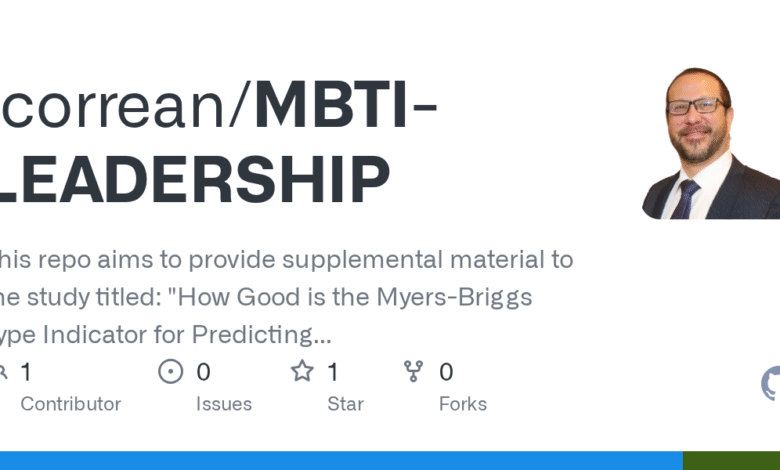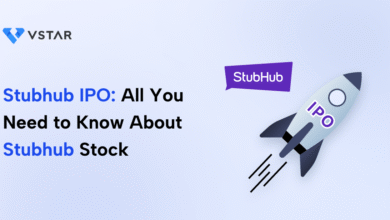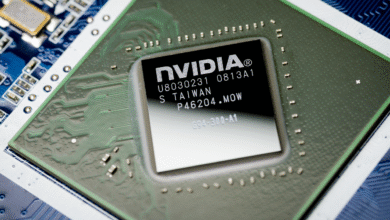GitHub Leadership Changes: What’s Next for Microsoft?

GitHub leadership changes are making headlines as the tech giant navigates a challenging landscape dominated by AI-powered coding tools. Thomas Dohmke, the current CEO, recently announced his departure after leading GitHub since mid-2021, a position he assumed following Nat Friedman. This comes at a critical time for GitHub, which is under Microsoft’s vast umbrella and poised to capitalize on the burgeoning demand for AI-related services. As Microsoft gears up to invest heavily in AI infrastructure, including the innovative CoreAI platform, the transition in leadership is expected to be pivotal for incumbents in the coding space. With developments like GitHub Copilot showcasing the potential of AI in coding, the tech community watches closely to see how these leadership changes will impact future growth and innovation in AI coding tools.
Recent shifts in the management of GitHub have raised questions and sparked discussions in the technology sector. The departure of Thomas Dohmke, after a pivotal role in guiding GitHub through competitive challenges, signals a new era for the platform. Under Microsoft’s ownership, the emphasis on integrating AI capabilities has intensified, particularly with projects like the CoreAI initiative. This strategic pivot aims to refine coding solutions amidst increasing competition from emerging AI-driven players. As GitHub finds its footing with new leadership, the evolution of AI coding applications such as GitHub Copilot remains at the forefront of the industry.
The Impact of Thomas Dohmke’s Departure from GitHub
Thomas Dohmke, who has led GitHub since 2021, has announced his departure from the company to pursue opportunities as a founder once again. His exit from GitHub marks a significant transition for the platform, especially as it navigates a competitive landscape filled with AI-powered coding tools. Dohmke’s leadership was crucial in steering GitHub through innovative projects, notably the launch of GitHub Copilot in collaboration with Microsoft and OpenAI. This tool has greatly enhanced the coding experience for developers by suggesting code snippets, thereby improving productivity across the board.
As GitHub prepares for leadership changes, the organization is expected to continue its integration into Microsoft’s CoreAI platform. This move follows CEO Satya Nadella’s objectives to establish artificial intelligence as a mainstay within Microsoft, aiming to invest significantly in AI infrastructure. The transition phase puts pressure on GitHub’s remaining leadership to maintain momentum in a crowded market where AI coding tools are becoming increasingly prevalent and sophisticated.
GitHub’s Position in the AI Coding Tools Market
The rise of AI coding tools has reshaped how developers approach coding, and GitHub is at the forefront of this innovative evolution. GitHub, with its robust platform, has seen a noteworthy increase in its user base, reaching over 150 million registered developers. However, it faces mounting challenges from new competitors like Cursor and Replit, which are providing unique AI-driven solutions. These emerging tools utilize advanced models to create code swiftly, offering developers alternatives that diversify the coding landscape.
In response to the shifting dynamics of the market, GitHub must leverage its first-mover advantage in AI applications like GitHub Copilot. Nadella’s acknowledgment of the growing user base for Copilot and the significant increase in enterprise customer usage signals that GitHub’s offerings are well-positioned to remain competitive. As competitors proliferate, it’s essential for GitHub to continue innovating and enhancing its tools and services to attract and retain developers looking for efficiency in their coding processes.
Microsoft CoreAI: A New Era for GitHub
The establishment of Microsoft’s CoreAI group marks a pivotal moment for the company and its subsidiaries, including GitHub. This strategic move, led by former Meta executive Jay Parikh, underscores Microsoft’s commitment to integrating advanced artificial intelligence capabilities across its platforms. With GitHub now under the umbrella of CoreAI, there are expectations for greater synergy between GitHub’s offerings and Microsoft’s broader AI initiatives, particularly with products like GitHub Copilot.
As part of the CoreAI organization, GitHub is positioned to benefit from Microsoft’s extensive resources and expertise in AI technology. This affiliation opens up possibilities for enhanced features and tools that could significantly improve the developer experience. With an increasing emphasis on AI in coding and software development, GitHub’s evolution within Microsoft’s CoreAI framework may allow it to dominate the market even as competition intensifies.
The Future of AI in Software Development
Artificial intelligence is revolutionizing the software development industry by enabling developers to focus on creativity while automating routine coding tasks. As companies like Microsoft invest heavily in AI, the tools and frameworks available to developers are becoming increasingly sophisticated. The future of software development is likely to see the integration of AI agents that will work alongside human developers, enhancing productivity and minimizing errors, leading to more efficient coding practices.
In this rapidly evolving landscape, GitHub stands to play a crucial role in shaping how developers interact with AI coding tools. The launch and continued improvement of GitHub Copilot reflect a growing trend toward AI-assisted programming. As the number of developers utilizing these technologies rises, platforms like GitHub will need to innovate consistently to meet user demands and adapt to new market conditions, ensuring that they remain leaders in the software development industry.
Navigating Competition: GitHub vs. Emerging AI Tools
As GitHub continues to be a powerhouse in the coding realm, it faces formidable competition from up-and-coming AI coding tools designed to streamline the coding process. Products such as Cursor and Windsurf are gaining traction, appealing to developers looking for innovative solutions that enhance their workflow. This competitive landscape necessitates a proactive approach from GitHub to not only retain its user base but also to attract new developers focused on efficiency and ease of use.
The emergence of these alternatives in the AI coding space underscores a significant cultural shift within software development. As users become more discerning about the tools they utilize, GitHub must leverage its established position and the advancement of AI technology, particularly through offerings like Copilot. The challenge will be in how GitHub differentiates itself in a saturated market while continuing to foster an environment that embraces the creativity and productivity of developers worldwide.
The Role of Microsoft in GitHub’s Strategic Vision
Microsoft’s influence on GitHub’s strategic direction is evident, particularly following the acquisition of GitHub for $7.5 billion in 2018. This partnership has allowed GitHub to access resources and support that enhance its development tools and capabilities. The integration of GitHub into Microsoft’s broader strategic initiatives, such as the growth of CoreAI, indicates a clear path forward. Microsoft is geared towards harnessing the power of artificial intelligence to not only innovate GitHub’s offerings but also to set a benchmark for the industry as a whole.
As Microsoft continues to emphasize its AI-driven goals, GitHub is poised to be a critical player in this narrative. With a focus on collaboration and innovation, the synergy between GitHub and Microsoft aims to yield cutting-edge tools that can propel developers into a new age of coding. This partnership is set not only to elevate GitHub’s product line but also to redefine industry standards for coding and software development practices.
Innovation and Development at GitHub Copilot
GitHub Copilot represents a significant leap forward in how developers approach coding, and its success is evidenced by the growing user base. With over 20 million users engaged with Copilot, Microsoft and GitHub have positioned themselves at the forefront of this innovative space. The tool is specifically designed to suggest code snippets and streamline the development process, making it a critical resource for developers seeking to enhance their productivity. This innovation is a direct response to the increasing demand for efficiency in software development.
The continuous evolution of GitHub Copilot will be a vital area of focus as GitHub adapts to the changing competitive dynamics of AI coding tools. By building upon user feedback and integrating more sophisticated AI algorithms, GitHub can ensure that Copilot remains not just relevant but also indispensable to today’s developers. The commitment to innovation highlights GitHub’s determination to maintain its lofty position in the market while navigating the challenges posed by new entrants.
Employee Sentiment and the Transition Ahead
The departure of CEO Thomas Dohmke elicits a range of sentiments among GitHub employees as they prepare for a leadership transition. His choice to step down to pursue new founding opportunities creates uncertainty; however, his assurance to guide the transition until year-end provides some stability. Employees may feel a mix of excitement and apprehension as they look toward the future leadership of GitHub, especially during a time when AI technologies are rapidly evolving.
Balancing change while striving for continuity in leadership will be essential for GitHub as it moves forward. The next leader will need to maintain the company’s vision and further drive innovation within the CoreAI framework. By addressing employee concerns and promoting an inclusive environment, GitHub can harness its internal talent to foster a collaborative atmosphere that embraces change and innovation, ensuring the organization continues to thrive.
The Evolution of Development Tools in a Competitive Landscape
The landscape for development tools is continuously evolving, driven by advances in technology and the increasing reliance on AI. With platforms like GitHub at the forefront, developers are presented with innovative tools that enhance their coding experience. However, as new competitors emerge and existing players evolve their offerings, GitHub must remain vigilant. This ongoing competition highlights the necessity of agile development practices and a commitment to user-centered design.
GitHub’s ability to adapt and innovate in response to these changes will be crucial in maintaining its relevance and leadership position. Fostering strong partnerships with AI technology firms, focusing on user feedback for enhancements, and possibly expanding its suite of tools will allow GitHub to remain competitive. By investing in the future of development tools and continuing to prioritize developer needs, GitHub can solidify its position in the AI coding tools arena and emerge as a leading innovator.
Frequently Asked Questions
What are the implications of the GitHub leadership changes for Microsoft’s CoreAI initiative?
The recent GitHub leadership changes, particularly Thomas Dohmke’s departure, coincide with Microsoft’s strong push into AI through its CoreAI initiative. As GitHub is now part of this group, it is expected to benefit from significant investments that Microsoft plans to make in AI technology, potentially enhancing its AI coding tools like GitHub Copilot.
Why did Thomas Dohmke leave GitHub and how will it affect GitHub’s future?
Thomas Dohmke announced his departure from GitHub to return to his entrepreneurial roots while assuring that he would assist in the transition until the end of the year. His exit raises questions about the strategic direction of GitHub amidst increasing competition in the AI coding tools space; however, Microsoft has reiterated its commitment to GitHub’s mission as part of the CoreAI organization.
How has GitHub Copilot impacted software development following the leadership changes?
Despite the leadership changes at GitHub, Copilot has continued to show impressive growth, with 20 million users reported and a dramatic increase in enterprise customers. GitHub Copilot’s collaboration with AI makes it a leading tool in the development community, likely continuing to thrive as GitHub integrates further with Microsoft’s CoreAI efforts.
What new developments can we expect from GitHub following the CEO transition?
With Thomas Dohmke’s departure, more details about GitHub’s future developments will be shared under Microsoft’s CoreAI platform. As the organization shifts focus towards enhanced AI tools, we may see updates and innovations in GitHub’s services, particularly around AI coding tools like GitHub Copilot that align with evolving industry demands.
How does the GitHub leadership change reflect the competition with other AI coding tools?
GitHub’s leadership change, marked by Thomas Dohmke’s exit, highlights its struggle to maintain competitiveness against emerging AI coding tools such as Cursor and Anthropic’s Claude Code. As GitHub aims to innovate and advance its AI offerings within Microsoft’s CoreAI initiative, these changes are crucial for retaining its leadership in a rapidly evolving tech landscape.
What opportunities does GitHub have in the AI space post-leadership changes?
Post-leadership changes, GitHub is positioned to leverage Microsoft’s significant investments in AI through its CoreAI division. Opportunities may arise for advanced AI coding tools to enhance developer productivity, particularly with the evolving capabilities of GitHub Copilot attracting a broader user base.
Will there be significant changes in GitHub’s strategy after the leadership shift?
While the immediate strategy under GitHub’s new leadership remains to be seen, the transition aligns with Microsoft’s broader AI objectives, suggesting that GitHub will likely evolve its strategy to emphasize AI integration within its products, such as GitHub Copilot, ensuring it stays competitive in a rapidly changing landscape.
| Key Point | Details |
|---|---|
| Leadership Change | Thomas Dohmke announced his departure as CEO of GitHub, with no successor named immediately. |
| Background of Dohmke | Joined Microsoft through the acquisition of HockeyApp in 2015, became GitHub CEO in 2021. |
| GitHub’s Role in Microsoft | GitHub is now part of Microsoft’s CoreAI organization focusing on AI development and infrastructure. |
| GitHub’s Offerings | Launched Copilot in collaboration with OpenAI which enhances productivity for developers with AI-generated code suggestions. |
| Developer Growth | GitHub claims over 150 million registered developers, up from 73 million in October 2021. |
| Competition | Emerging AI-powered coding tool competitors include Cursor, Replit, and Windsurf, challenging GitHub’s leadership. |
| Microsoft’s Commitment | Microsoft plans to invest significantly in AI, indicating strategic importance for GitHub in its overall strategy. |
Summary
GitHub leadership changes signify a pivotal moment for the company as it navigates competition in the AI-powered coding tools market. With Thomas Dohmke stepping down as CEO, GitHub is set to realign itself under Microsoft’s CoreAI organization, which highlights its commitment to AI innovation. As GitHub transitions to a new leadership structure, its mission to support developers with tools like Copilot remains a priority, ensuring that it continues to thrive in a rapidly evolving landscape of coding solutions.




